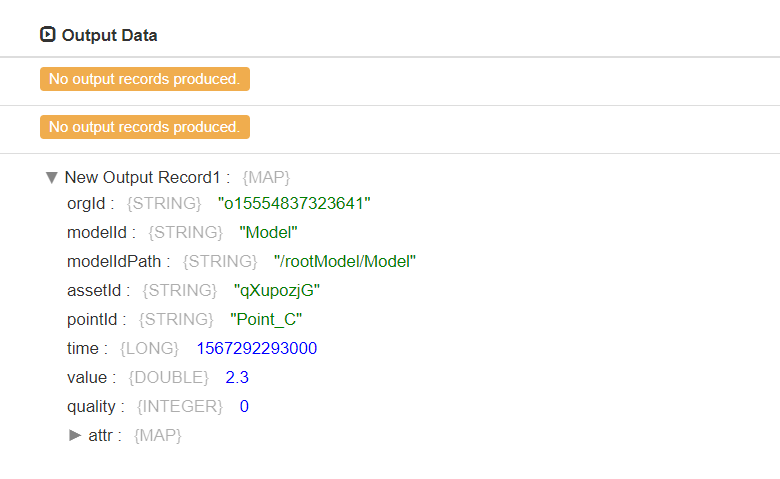Record Restorer¶
This stage parses the data records that pass through this stage, filter records that match with the input data of the current batch. The calculation logic of this stage is as follows:
- This stage retrieves the cached data from Redis, and output the data records after renaming. This stage has a dependency on the Record Capturer stage.
- This stage cannot guarantee idempotence of the calculation results due to failure retries caused by any reasons, such as cluster node exceptions.
Configuration¶
The configuration tabs for this stage are General, Basic, Input/Output, and CacheConfig.
General¶
| Name | Required? | Description |
|---|---|---|
| Name | Yes | The name of the stage. |
| Description | No | The description of the stage. |
| Stage Library | Yes | The streaming operator library to which the stage belongs. |
| Required Fields | No | The fields that the data records must contain. If the specified fields are not included, the record will be filtered out. |
| Preconditions | No | The conditions that must be satisfied by the data records. Records that do not meet the conditions will be filtered out. For example, ${record:value('/value') > 0}. For the syntax of EL expressions, see Expression Language. |
| On Record Error | Yes | The processing method for error data.
|
Basic¶
| Name | Required? | Description |
|---|---|---|
| Quality Filter | No | Filter the data according to the data quality. Only records that meet the quality conditions will be processed by this stage. |
Input/Output¶
| Name | Required? | Description |
|---|---|---|
| Input Point | Yes | Specify the input point that triggers the reading of the cached data, using the format {modelId}::{pointId}. |
| Restore Point | Yes | Specify the point data to be retrieved from the cache, using the format {modelId}::{pointId}. |
| Output Point | Yes | Specify the output point used for renaming the cached data, using the format {modelId}::{pointId}. |
CacheConfig¶
| Name | Required? | Description |
|---|---|---|
| Cache Type | Yes | Select the storage type for cache data. Options are Redis and Local storage.
|
